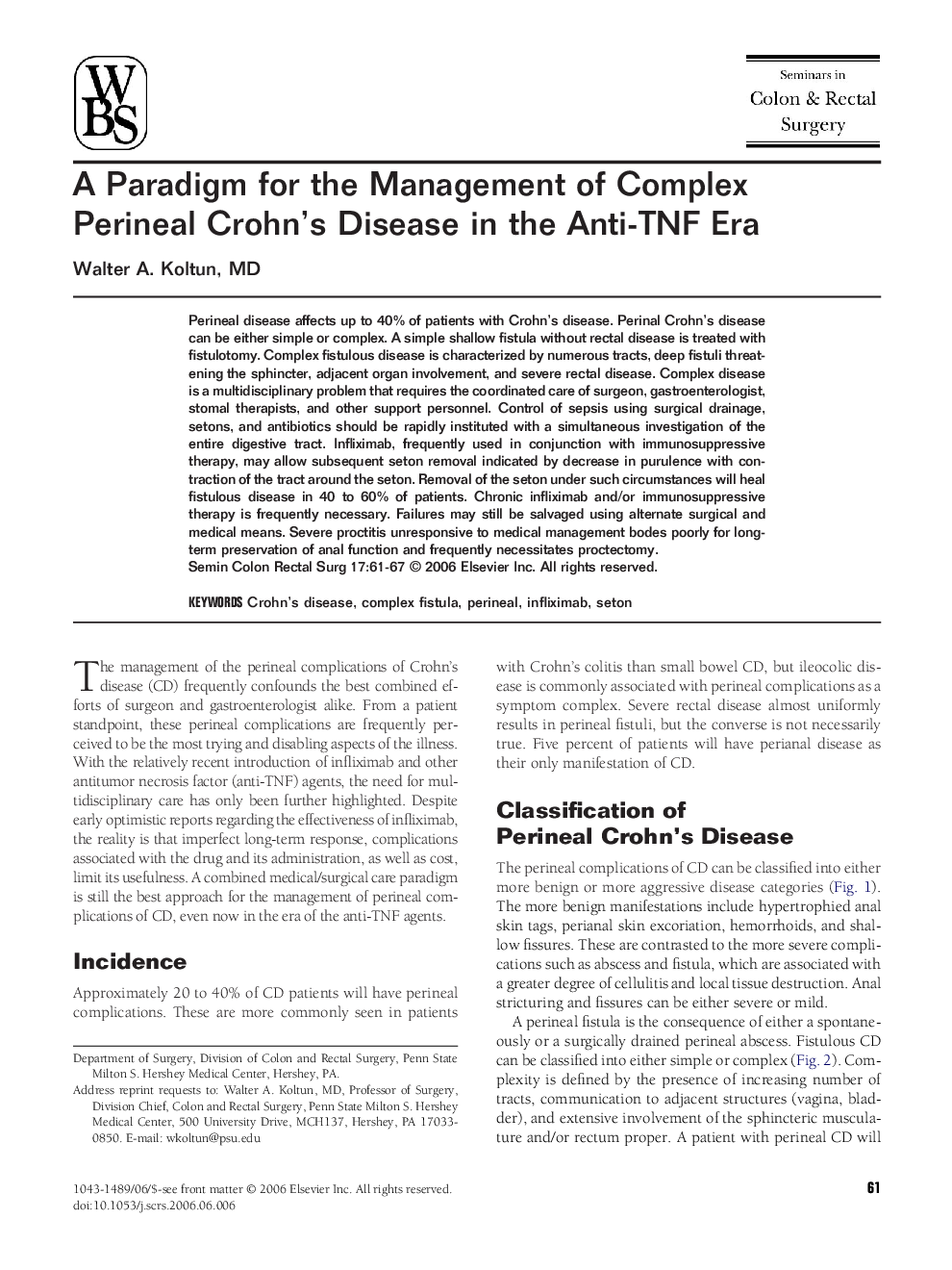| Article ID | Journal | Published Year | Pages | File Type |
|---|---|---|---|---|
| 3319651 | Seminars in Colon and Rectal Surgery | 2006 | 7 Pages |
Abstract
Perineal disease affects up to 40% of patients with Crohn's disease. Perinal Crohn's disease can be either simple or complex. A simple shallow fistula without rectal disease is treated with fistulotomy. Complex fistulous disease is characterized by numerous tracts, deep fistuli threatening the sphincter, adjacent organ involvement, and severe rectal disease. Complex disease is a multidisciplinary problem that requires the coordinated care of surgeon, gastroenterologist, stomal therapists, and other support personnel. Control of sepsis using surgical drainage, setons, and antibiotics should be rapidly instituted with a simultaneous investigation of the entire digestive tract. Infliximab, frequently used in conjunction with immunosuppressive therapy, may allow subsequent seton removal indicated by decrease in purulence with contraction of the tract around the seton. Removal of the seton under such circumstances will heal fistulous disease in 40 to 60% of patients. Chronic infliximab and/or immunosuppressive therapy is frequently necessary. Failures may still be salvaged using alternate surgical and medical means. Severe proctitis unresponsive to medical management bodes poorly for long-term preservation of anal function and frequently necessitates proctectomy.
Related Topics
Health Sciences
Medicine and Dentistry
Gastroenterology
Authors
Walter A. MD,
